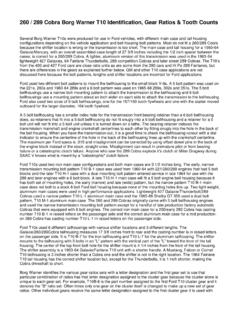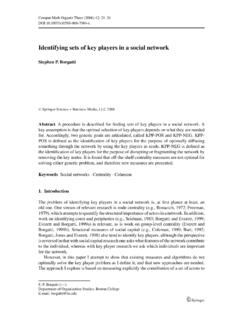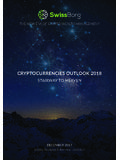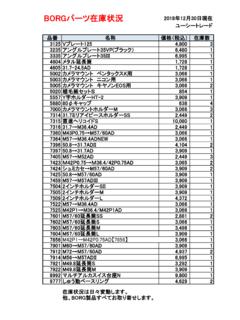Transcription of Discourse community - Sullivan Files
1 398 ELT Journal Volume 57/4 October 2003 Oxford University PressDiscourse communityErik BorgWe do not generally use language to communicate with the world atlarge, but with individuals or groups of individuals. As in life, fordiscussion and analysis in applied linguistics these groups are gatheredinto communities. One such grouping that is widely used to analysewritten communication is Discourse community . John Swales, aninfluential analyst of written communication, described discoursecommunities as groups that have goals or purposes, and usecommunication to achieve these goals. Central to his analysis is thenotion of genre, the organizational patterns of written communicationwhich he sees as belong[ing] to Discourse communities and conversely,helping to define those communities (1990:9; for genre, see Allison1999).The concept of Discourse communities developed from the concepts ofspeech community and interpretive community , and sits somewhatuneasily between them. Speech community (Hymes 1972) refers toactual people who recognize their language use as di erent from otherlanguage users, Australian English or Geordie English.
2 Interpretivecommunity (Fish 1980), on the other hand, refers not to a gathering ofindividuals, but to an open network of people who share ways of readingtexts, primarily literary texts; this term therefore highlights the socialderivation of a speech community , membership of a Discourse community isusually a matter of choice; unlike an interpretive community , membersof a Discourse community actively share goals and communicate withother members to pursue those goals. One additional element generallycharacterizes discussions of Discourse communities: these discussionstypically focus on the use and analysis of written communication. Swales(1990), for example, suggested that a prototypical Discourse communitymight be a society of stamp collectors scattered around the world butunited by a shared interest in the stamps of Hong Kong. The collectorsnever gather together physically; instead a newsletter that has a particularform of text organization, making it a genre, which they use to pursuetheir goals, unites them.
3 Other writers ( Johns 1997; Porter 1986)have suggested that Discourse communities might have commoninterests, but not necessarily common goals, as, for example, a family orthe alumni body of a university. Some writers have described ankey concepts in elt academic Discourse community , while others have identified discoursecommunities within the academy, for example, palaeontologists orpolitical the study of writing in academic contexts, the concept ofdiscourse community has proved fruitful for the study of writing forspecific purposes. For example, the need to identify and address aparticular audience in business settings has been studied byKillingsworth and Gilbertson (1992), Olsen (1993), and Orlikowski andYates (1994) among others. O ord-Gray and Aldred made research intothe learner needs as perceived by the Discourse community (1998: 77)the first principle in designing their ESPcourse for accountants, and, byimplication, an organizing principle of any ESPcourse , several issues have not been well defined in relation todiscourse communities: how large (or small) a Discourse communitymight be; whether speech is needed to maintain a Discourse community ;whether purpose is the defining characteristic of a Discourse community ,and how stable a Discourse community , and therefore its genres, (1992) argued that there is a public Discourse community , andothers have suggested there may be an academic Discourse community .
4 It is necessary to ask whether the Discourse of such nebulouscommunities can be described in meaningful terms. At the opposite end,can a family scattered around the world but united by e-mail be describedas having a Discourse ?In 1990, Swales described a Discourse community that was united onlyby written communication. However, in 1998 he revisited the questionand di erentiated between Discourse communities and place discoursecommunities which were united by both written and spokencommunication. This element is significant, as it touches on how thecommunity reproduces itself, and how novice members are initiated intothe expectations of the community . Whether novices can learn theseexpectations through the analysis and teaching of written texts, or onlythrough a process of apprenticeship (Atkinson 1997; Wenger 1998) hasimplications for the teaching of writing within a community , such asacademic is a further question of whether shared goals are necessary todefine a Discourse community .
5 Although Swales (1990) felt shared goalswere definitive, a public Discourse community cannot have sharedgoals, and more crucially, a generalized academic Discourse community may not have shared goals or genres in any meaningful sense. This maybe why, as Johns (1997) noted, Discourse community is being displacedby community of practice , a term from sociocultural theory rather thanlinguistics, even in contexts where a linguistic term might seemappropriate, such as the 2002 conference theme of the BritishAssociation of Applied Linguists, Applied linguistics and communitiesof practice . Communities of practice (Wenger 1998: 78) has a cleardefinition that includes mutual engagement and a joint enterprise ,which separates it from the more di use understandings that surrounddiscourse concepts in ELT: Discourse community399 Finally, there is the question of the stability and power of discoursecommunities and their genres. If Discourse communities are seen asstable, with experts who perform gatekeeping roles, then their genres arenormative, and novices must conform to the expectations of thecommunity in order to enter it.
6 Other writers ( Canagarajah 2002)suggest that this view takes power away from learners, and instead heproposes that conventions and rules should be deconstructed, withnovices encouraged to appropriate the Discourse of the community , bothfor their own purposes and for the renewal of the Discourse communityitself. In this, as with other disputed issues surrounding discoursecommunity , there are significant implications for the teaching BorgReferencesAllison, Key concepts in ELT: Genre .ELTJ ournal53/2: , A critical approach to criticalthinking in TESOL . TESOLQ uarterly31/1: 71 , A. Multilingual writers andthe academic community : Towards a criticalrelationship . Journal of English for AcademicPurposes1/1: 29 , Is There a Text in This Class? TheAuthority of Interpretive Communities. Cambridge,MAand London: , D. On communicativecompetence in J. B. Pride and J. Holmes (eds.).On Communicative Competence. , A. Text, Role and Context:Developing Academic Literacies.
7 Cambridge:Cambridge University , M. M. K. , Genres and Communities in TechnicalCommunication. Amityville, NY: BaywoodPublishing ord-Gray, D. A principledapproach to ESPcourse design . Hong KongJournal of Applied Linguistics3/1: 77 , L. Research on discoursecommunities: An overview in R. Spilka (ed.).Research on Discourse Communities: An & Edwardsville, IL: Southern IllinoisUniversity , W. J. Genrerepertoire: The structuring of communicativepractices in organisations . Administrative ScienceQuarterly39/4: 541 , J. Intertextuality and the discoursecommunity . Rhetoric Review5/1: 34 , J. Audience and Rhetoric: AnArchaeological Composition of the DiscourseCommunity, Englewood Cli s, NJ: Prentice , J. Genre Analysis: English inAcademic and Research Settings. Cambridge:Cambridge University , J. Other Floors, Other Voices: ATextography of a Small University , NJ: Lawrence Erlbaum , Communities of Practice: Learning,Meaning, and Identity. Cambridge: CambridgeUniversity authorErik Borgis a lecturer in the English LanguageCentre at Northumbria University and a PhDstudent at the University of Leeds.
8 He is a memberof the co-ordinating committee of the IATEFLR esearch SIG, and is interested in academicliteracy and all sorts of writing. Email.





